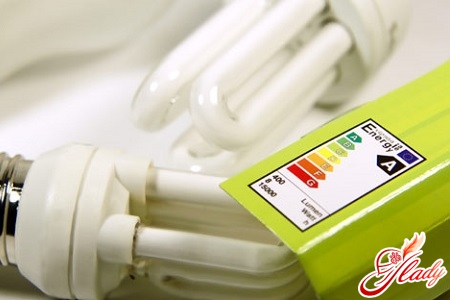 "He retired from business and lives on interest" -a magic phrase. It immediately comes to mind - the sea, a yacht, a villa, a cigar...what else should be in the script? But how realistic is it for "mere mortals"? Well, most likely, "living on interest" won't work right away. But why not try to make your money work for us? Well, at least a little... It will be easier! How to do it? Take it to the bank. Although, first, you need to figure out which deposit to choose.
"He retired from business and lives on interest" -a magic phrase. It immediately comes to mind - the sea, a yacht, a villa, a cigar...what else should be in the script? But how realistic is it for "mere mortals"? Well, most likely, "living on interest" won't work right away. But why not try to make your money work for us? Well, at least a little... It will be easier! How to do it? Take it to the bank. Although, first, you need to figure out which deposit to choose.
Select deposit period
"How soon might I need money?» Perhaps this is the first question a person who has decided to open a bank account should ask himself. Having answered it, you will be able to determine the term of your deposit. The choice here is huge - banks provide deposits for almost any term - a month, a year, several years. And some of them have gone even further - you can set the exact date of closing the account. Let's say that in 52 days someone close to you has an anniversary and you, of course, will need money. So, you can open a deposit for exactly 52 days. Convenient, right? As a rule, when opening a deposit, people pursue one goal - to make sure that the money begins to bring maximum profit. But, unfortunately, life sometimes presents unpleasant surprises - there may be an urgent need for money. Even if before that you were sure that you would not need it in the near future. Which deposit should you choose so that the money works effectively, and it is as convenient for you as possible? All banks operate on the same principle - the less freedom you have in managing your deposit, the higher the interest on it. And this is quite understandable. After all, knowing for sure that you will not be able to "pull out" your money before the established deadline, the bank can freely dispose of it during this entire period. It is a different matter if you can withdraw the money at any time. Of course, this is not profitable for banks.
Main types of deposits
- Contribution Classic
With this deposit you will receive the maximumincome. It works very simply. You put money in and, until a certain period of time, it is “frozen”. That is, you will not be able to either replenish the account or withdraw money from it. If you are absolutely sure that you will be able to “forget” about your money for some time, then it is better to choose this one.
- Deposit with the possibility of replenishment
As a rule, this deposit has an average yield.The idea is this - you can deposit additional money into your account, but you won't be able to withdraw it. This type of deposit is very convenient for those whose money "always disappears somewhere." After receiving the next payment, you simply put it into the account. This way, you protect yourself from unnecessary temptations.
- Deposit with possibility of replenishment and partial withdrawal
The interest rate on this deposit is the smallest, butfreedom - much more. You will be able not only to deposit money, but also to withdraw it from the account. True, within the limits of the amount determined by the bank. This deposit is convenient for those who are not very confident about the future and want to have "escape routes".
Select currency
If you are far from the world of finance, - allthese traders, brokers, currency exchanges, etc. - then you can only intuitively determine the currency that is most profitable for investment. According to the "believe it / don't believe it" principle. Although there is another option - to open a multi-currency deposit. It is believed that this is a good way to reduce risks. The point is this. When you open a deposit, you get several accounts in different currencies at once. As a rule, the three most popular ones are used - the ruble, the euro and the dollar. All your money is distributed among the accounts in some proportion. The bank sets a separate rate for each currency. If necessary, you can give the bank an order and transfer money from one account to another. In this case, all the terms of your deposit remain in force. There is only one deposit! There are three accounts on it. The only problem is that you will have to constantly "keep an eye" on this account, tracking exchange rate fluctuations. Otherwise, what's the point?
Select a bank
First, you need to decide which banks you prefertrust - private or public. In private banks, as a rule, interest rates are higher. But are they really that reliable? Russia has a system of insurance of cash deposits. It also applies to commercial banks. What does this mean? This means that if your deposit is less than 700,000 rubles, you will get your money back in any case. Whatever happens to your bank and no matter what it is - public or private. The state deposit insurance agency will return it to you. However, if you have several accounts in one bank and the total amount of money in them exceeds 700,000, then you will still only get this amount at once. And the rest will be paid to you in parts. What to do? Experts recommend opening several accounts in different banks. Then all your deposits will be covered by state "insurance". In order to decide which bank to trust your money to and which deposit to choose, you need to study the terms of deposits of various organizations. This way you can find the most suitable and advantageous offer for you.
Attention and once again attention!
Before opening a deposit, the bank will offeryou sign a contract. This document will determine all your future relations with the organization. Interest rate, type of deposit, penalties for early termination - all this information is written in the document. You must clearly understand what you are agreeing to. In order to protect yourself from unpleasant surprises, it is recommended to study the contract in advance, in a calm environment. You can simply go to the bank and ask to print out the document. Read it "cover to cover" - especially what is written in small print. If you have any questions - be sure to ask them before signing.
"Underwater rocks"
Bank fees are the moneywhich you will be charged for deposit transactions. The problem here is that not all of them are spelled out in the contract. You read it, right? Sometimes commissions are “hidden” in the tariffs for account transactions. Be sure to study these tariffs - they can significantly affect the profitability of your deposit. Well, it seems that we have more or less figured out how to choose a deposit. Let's try? And even if a villa and a yacht are still just dreams, but maybe they - our money - can earn us at least a pair of shoes and a new dress? We advise you to read:









